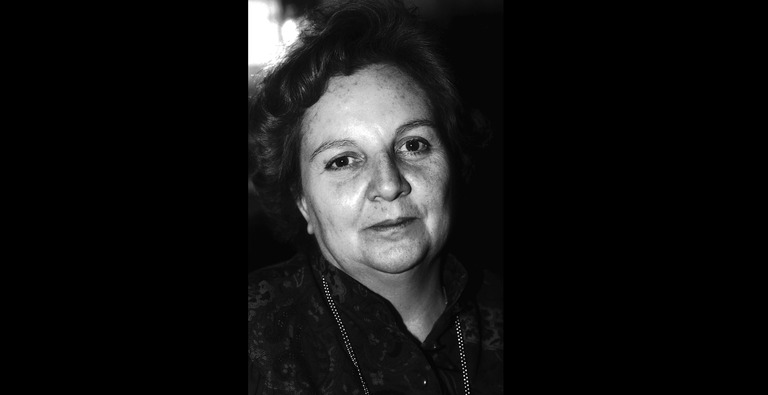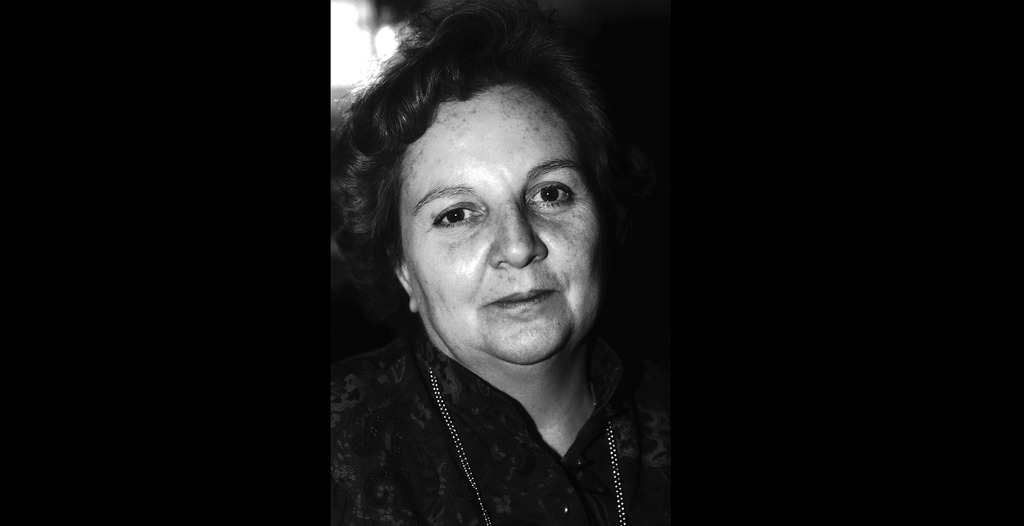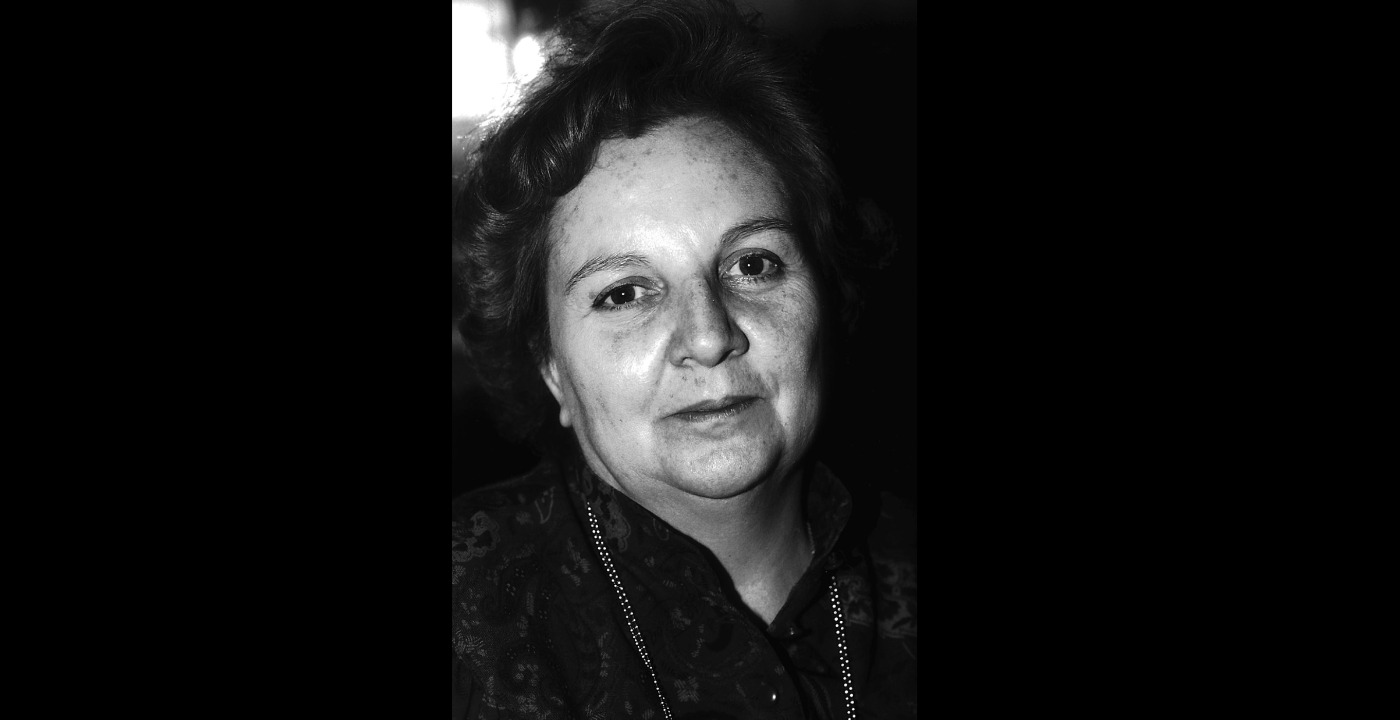Birth
August 9, 1930
Death
September 20, 2015
Carmen Balcells was a literary agent who represented key writers of the Latin American Literary Boom, a name given to the publishing market phenomenon that occurred between 1960 and 1970 and that launched the work of Gabriel Garcia Marquez, Carlos Fuentes, and Mario Vargas Llosa to a global spotlight. She has been credited with formalizing the role of the literary agent in the Spanish-language publishing industry. She also professionalized the writer’s work by advocating for their rights before publishing houses and establishing changes in how book contracts are conceptualized.
Personal Information
Name(s)
Carmen Balcells Segalá
Date and place of birth
August 9, 1930, Santa Fe, Les Oluges, Spain
Death and place of death
September 20, 2015, Barcelona, Spain
Family
Mother: Mercedes Segalá Marcet
Father: Ramón Balcells Carrera
Marriage and Family Life
Spouse: Lluís Palomares I Mitjans (b. October 1932, Terrassa, Spain, d. 2010, Barcelona, Spain)
Children: Lluis Miquel Palomares Balcells (b. March 1964, Barcelona, Spain)
Education (short version)
Balcells attended primary school in her hometown of Santa Fe, Spain. In 1942, she moved to Barcelona where she attended a school run by Teresian nuns. After her secondary education, she received secretarial training.
Education (longer version)
Balcells’ mother was a strong influence in her daughter’s interest in literature; born in an established family who valued education, Mercedes Segalá was interested in music, languages, and culture, and she worked to inculcate these traits in her daughter. Mercedes allegedly looked for a school that would not only give her daughter a cultural education, but that would also provide her with a skillset that would allow her to live independently if she desired. After her time at the Teresian School, Balcells enrolled in secretarial training, which led her to a secretary post in a mercantile union. From then, Balcells’s education was completed “on the job,” for she obtained no further degrees.
Religion
Catholic
Transformation(s) Balcells began her career as a secretary at a mercantile union, and it was while she was helping a lawyer associated with her company publish her book that Balcells realized she wanted a career in book publishing. She began tentatively. Balcells took on part-time positions in other agencies, and when she finally started her own company, she relied on the catalogs of established publishing houses. When she launched Agencia Literaria Carmen Balcells, the job of the literary agent was virtually undeveloped in Spain, both as a result of the time and the Francoist regime that, up until then, had isolated the country, limiting the growth of industries. In the 1950s, the Franco Regime, spurred by the symptoms of a decaying economy embarked on a project called la apertura, which sought to reposition Spain globally. Among various initiatives in la apertura, the regime identified preferred industries that had high economic or political potential, and created tax policies that would favor their growth. Publishing was deemed a preferred industry, not just for the impact it could have on adjoining industries, like paper, but because of the cultural influence it would allow Spain to exert in Latin America. This development, combined with the relaxation of policies in Catalunya, made Barcelona a hub from the 1950s through the 1970s, and it was in this context that Balcells embarked on her entrepreneurial journey. Though she was not immediately successful or efficient as an agent (letters between some of her writers claim they needed to egg her on or step in for her in negotiating contracts), she gained her sea legs with time, especially after the global success of Gabriel García Márquez’s One Hundred Years of Solitude, published in 1967. Initially, Balcells’ contributions to her writers’ careers were in negotiating translation deals for their existing work, but over time she began to negotiate the rights of new Spanish language books with publishing houses, later introducing film and other adaptations.
less
Significance
Reputation
As a result of the celebrity of the writers she represented, Balcells was a “public” figure throughout her career, but she did not give many interviews until her later years. When she died in September, 2015, her legacy was celebrated in obituaries published in some of the most important magazines and newspapers in the Western world, including the New York Times, the New Yorker, the Guardian and El País. However, limited attention has been paid to her career in academic settings.
Legacy and Influence
Carmen Balcells was one of the most respected literary agents in the world, known in the international publishing industry as a tastemaker who dictated trends in Spanish-language literature. During her career as a literary agent, Balcells represented García Márquez, as well as Carlos Fuentes, Mario Vargas Llosa, Isabel Allende, Julio Cortazar, José Donoso, among many other Latin American literary giants. Balcells played an important role in formalizing the Spanish literary industry by setting professional standards to ensure that the author’s work would be justly compensated. Balcells has been credited with introducing limitations in contract lengths and geographic scope, giving authors more control over their oeuvre.
Today, her literary agency is run by her son, Lluis Miquel Palomares.
less
Controversies
Carmen Balcells was, above all, an entrepreneur. After many years of running her literary agency, she became interested in expanding her business. In the 1980s, with the help of other editors, she launched a “full editorial services” agency. To many, this agency was a publishing house by another name. It created a mild controversy in the publishing industry, which was fearful of a publishing house run by one of the most powerful literary agents. Balcells exited the venture a couple years after its founding.
less
Clusters & Search Terms
Current Identification(s)
Literary (Book?) History, Latin American Literature, Publishing Industry
Clusters
Latin American Literary Boom: Gabriel García Márquez, Mario Vargas Llosa, Carlos Fuentes, Isabel Allende, José Donoso, Jorge Ibarguengoitia,
Spanish Publishing Figures: Carlos Barral, Jaime Sabria,
Women in Publishing: Esther Tusquets, Antonia Kerrigan,
Cold War
Franco Spain, Spain, Barcelona, Catalonia
Literary Agents: Andrew Wylie, A.P. Watt, J.B. Pinker
Search Terms
Latin American Literary Boom, Literary Agents, Publishing History, Spanish-Language Literature, 20th Century Literature, Latin American Literature, Book History, Catalan literary agents, Spanish Literary Agents
less
Bibliography
Secondary:
Ayén, Xavi. Aquellos años del boom: García Márquez, Vargas Llosa y el grupo de amigos que lo cambiaron todo. Barcelona: RBA Libros, 2014.
Herrero-Olaizola, Alejandro. “Historias de papel: Latinoamérica en la memoria editorial.” Salina: revista de lletres, no. 15 (2001): 221–28.
Herrero-Olaizola, Alejandro. The Censorship Files: Latin American Writers and Franco’s Spain. Albany, 2007.
Llosa, Mario Vargas, Gabriel García Márquez, Carlos Fuentes, and Julio Cortázar. Las cartas del Boom. Ciudad del México, D.F: Alfaguara, 2023.
Martin, Gerald. Gabriel García Márquez: A Life. Illustrated edition. New York: Vintage, 2010.
Martín, Jesús Antonio Martínez. Historia de la edición en España 1939-1975. Madrid: Marcial Pons Ediciones de Historia, S.A., 2015.
Moret, Xavier. Tiempo De Editores. Barcelona: Destino, 2002.
Riera, Carme. Carmen Balcells, traficante de palabras. Barcelona: Debate, 2022.
Salinas, Jaime. Cuando editar era una fiesta: Correspondencia privada. Edited by Enric Bou. Barcelona: Tusquets Editores S.A., 2020.
Santana, Mario. Foreigners in the Homeland: The Spanish American New Novel in Spain, 1962-1974. Bucknell University Press, 2000.
Archival Resources (selected):
José Donoso Papers, Manuscripts Division, Department of Rare Books and Special Collections, Princeton University Library.
Carlos Fuentes Papers; Manuscripts Division, Department of Rare Books and Special Collections, Princeton University Library.
Gabriel García Márquez Papers, Harry Ransom Center, University of Texas, Austin.
Mario Vargas Llosa Papers, Manuscripts Division, Department of Rare Books and Special Collections, Princeton University Library.
Web Resources (selected):
Imprescindibles - La Cláusula Balcells. Accessed December 3, 2016. https://www.youtube.com/watch?v=wBPK8SiQk4c.
Issues with the Sources
In 2014, Carmen Balcells sold her archive to the National Archive of Spain (housed in Alcalá de Henares). It has not yet been opened to the public.



Comment
Your message was sent successfully